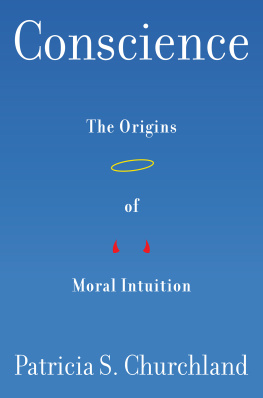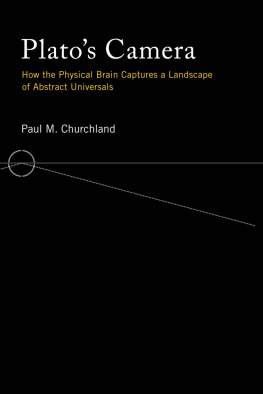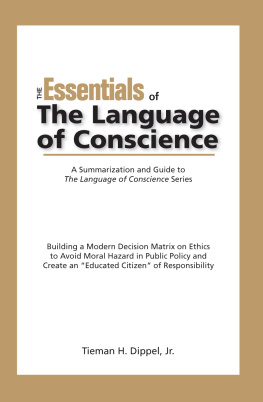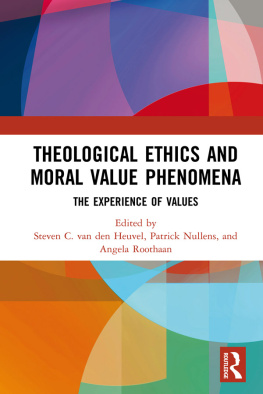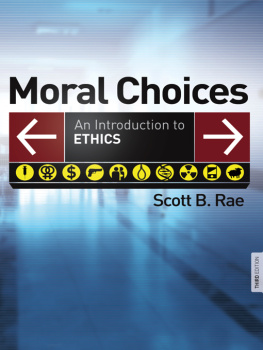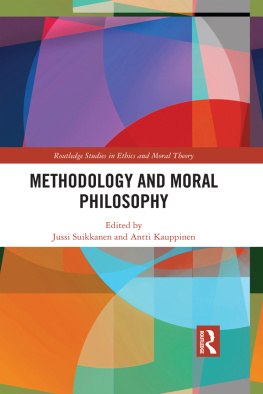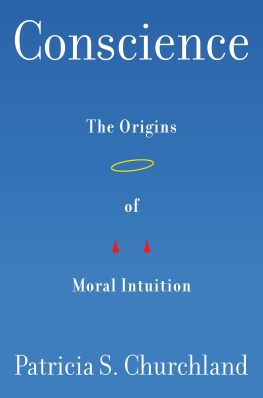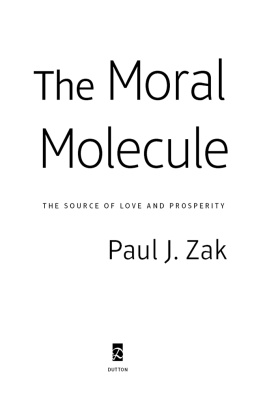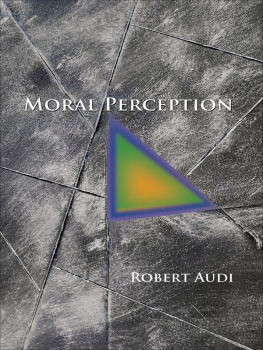Contents

Conscience
ALSO BY PATRICIA S. CHURCHLAND
Touching a Nerve: Our Brains, Our Selves
Braintrust: What Neuroscience Tells Us about Morality
The Computational Brain (coauthor)
Neurophilosophy: Toward a Unified Science of the Mind-Brain
Conscience
THE ORIGINS OF
MORAL INTUITION
Patricia S. Churchland

W. W. NORTON & COMPANY
Independent Publishers Since 1923
New York | London
Copyright 2019 by Patricia S. Churchland
All rights reserved
First Edition
For information about permission to reproduce selections from this book, write to
Permissions, W. W. Norton & Company, Inc., 500 Fifth Avenue, New York, NY 10110
For information about special discounts for bulk purchases, please contact
W. W. Norton Special Sales at specialsales@wwnorton.com or 800-233-4830
Book design by JAM design
Production manager: Julia Druskin
The Library of Congress has cataloged the printed edition as follows:
ISBN 978-1-324-00089-1
ISBN 978-1-324-00090-7 (ebk.)
W. W. Norton & Company, Inc., 500 Fifth Avenue, New York, N.Y. 10110
www.wwnorton.com
W. W. Norton & Company Ltd., 15 Carlisle Street, London W1D 3BS
Contents
I cannot and will not recant anything, for to go against conscience is neither right nor safe. Here I stand, I can do no other, so help me God. Amen.
MARTIN LUTHER
H anyani Camp is a Dn village of about a dozen log houses tucked into the bush on the banks of the Nahanni River, in Arctic Canada. Their prisoner is young, perhaps twenty-two years. He sits peacefully in handcuffs. He is mildly embarrassed, yet dignified and composed. The story? No one explains, or even hints with a bit of body language. I know enough, however, to make a reasonable guess. A brawl, probably; a murder, quite possibly. The two constables and the cuffs are a bad sign.
The man surely has a deep range of skills for living off the land. I can manage to put up a tent in the howling wind, but this Dn man, he can certainly read the river and the bush. He will have regularly brought in moose and tracked bearskills I cannot begin to claim. He will know how to survive well through eight months of ruthless winter. I know precisely nothing of this Dn man or his circumstances. Still, I find myself spinning a hopeful narrative whereby he does not spend time in prison, closed in by walls, with no river, no moose, and no family.
My conscience roils as I recall the bitterly familiar story of how the life of the Dn people was shattered after contact. Flourishing Dn villages were decimated by smallpox, crumbling the cohesion of traditional life along with deep survival knowledge and social wisdom. Dn hunting lands were gifted to the greedy invaders who plied the elders with whiskey and sneered at their skills. In the contemptuous name of civilization, beloved Dn children were rounded up and placed in residential schools hundreds of miles yonder, where they were isolated from siblings and beaten for speaking their own language, the only language they knew.
I briefly consider shambling over to the Dn man, perhaps striking up a kindly conversation. Oh, get a grip on yourself. How presumptuous, condescending, and self-consoling. For one thing, he is apt to feel obliged to put out the effort to reassure you. The confused young constables would have to wonder if they should shoo this meddlesome woman back to her spot in the weeds. Despite my self-reproach, I feel that recognizable tightening in my gut. I ought to do something. But there is nothing to be done.
Were I a solitary creature like a salamander, none of this would trouble me. I would have no moral conflicts, no social conscience. I would feed and mate and lay my eggs. I would not fret about other salamanders, not even those hatching from my very own eggs. I would see to my own needs, and care not a whit for others. But I am a mammal, and like other mammals, I have a social brain. I am wired to care, especially about those I am attached to.
My mammalian brain sees to it that I am attached to my family and my friends. This means that I am concerned about how they are getting on. I have empathy and sympathy and sometimes moral indignation. I can be powerfully motivated to cooperate, even when doing so entails going against my own interests. My brain has also learned the traditions of my kith and kin. Consequently, I may be moved to tell the truth when a lie would be self-serving. I may be moved to punish those who torment the weaker ones or who exploit the gullible ones. I have a conscience. Or as I sometimes think of it, my brain sees to it that I have a conscience.
Some of the deepest thinking on human morality originates with the Greek philosophers in the fifth century BCE. These include Plato and Aristotle and, in his unique style, Socrates. Interestingly, the ancient Greeks did not have a single word that is equivalent to our word conscience. They did not need the word, however, to appreciate the persuasive influence of moral feelings. The specific word conscience was invented later, by the Romans. In Latin, con means in common, and scientia means knowledge. So con scientia meant, roughly, knowledge of the community standards. Like Socrates, however, the Roman philosophers knew that conscience cannot always conform to community standards, for our moral sense sometimes requires us to challenge those very standards.
Famously, Martin Luther (14831546), the priest and theologian who was a seminal figure in the Protestant Reformation, rebuffed prevailing church standards when he nailed his devastating objections to the cathedral door in 1517. The churchs standards, especially as they involved moneygrubbing and craven obedience to authority, were precisely what Luther was convinced were morally heinous. Luther explicitly used conscience to mean a broader knowledge of what is morally right and wronga sensibility extending beyond prevailing standards. Invoking this construal of conscience raises the question of the source of human knowledge of right and wrong, if not community standards.
Socrates (469399 BCE) had a lifelong concern with how we come by our moral convictions. He was especially troubled by our propensity to claim certainty about what is right and wrong, even when that certainty is misplaced. In revealing the pattern of his own moral deliberations, he referred to his inner voice, where we might speak instead of conscience. Always modest, Socrates explained that his inner voice was not entirely reliable and might sometimes lead him astray. Acknowledging the unreliability of his inner voice led Socrates to claim that moral wisdom necessitated admitting our moral ignorance and imperfection. Phony wisdom, he warned, had the look of dogmatic conviction. Certainty about ones moral stance might be soothing, but it tends to blinker us to damage we are about to cause.
Socrates did not imply that his inner voice speaks only about moral questions. Ones inner voice can examine both sides of a moral issue, but it can also chatter on about a lot of things, both moral and practical, both sensible and foolish. On financial matters, my inner voice often sounds like my thrifty dad: You change the oil yourself, dearie; no need to pay someone to do it for you. When I am writing prose, my inner voice sounds like Mrs. Lundy, my grammar teacher, catching the misplaced modifier. Quite often, the voice sounds just like me talking to myself: Look on the funny side or, during the years when philosophers bashed me for studying the brain, Outlast the bastards.

